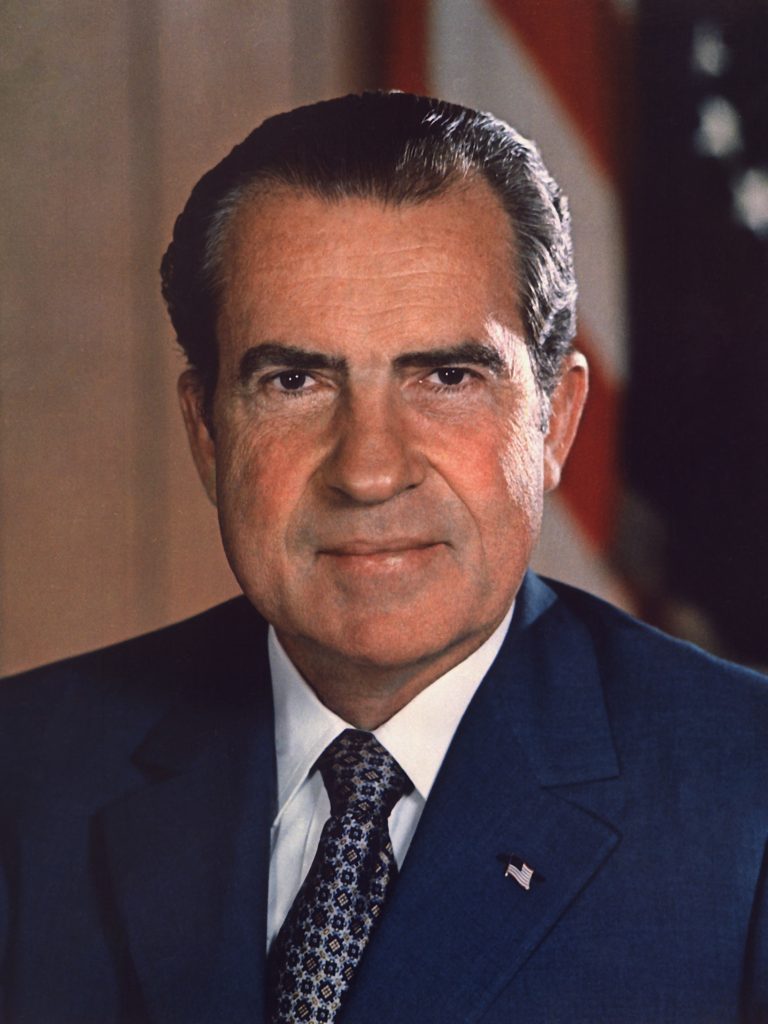In 1968, Nixon Instructed His Aide To Disrupt Vietnam Peace Talks

In a Nutshell
- Unearthed notes indicate Richard Nixon’s alleged subterfuge in the 1968 Vietnam peace talks, aimed at securing his presidential election.
- Nixon, it appears, instructed his aide, H. R. Haldeman, to keep the South Vietnamese leaders away from agreeing to a peace deal pre-election.
- This discovery bolsters claims that Nixon played an active role in obstructing peace talks, despite his vehement denials.
- Historians view this revelation as pivotal, cementing Nixon’s involvement in this covert political chess game.
Nixon’s Shadow Play in the Vietnam Peace Talks
Think about the presidential race of 1968. Picture Richard Nixon, then a candidate, worried that strides toward peace in Vietnam might thwart his race to the White House. A new twist in this political saga arrived when historian John A. Farrell, like a detective in a noir film, discovered some damning notes at the Richard Nixon Presidential Library.
“Nixon gave instructions that a friendly intermediary should keep ‘working on’ South Vietnamese leaders to persuade them not to agree to a deal before the election,” the notes read. It was like Nixon was the puppeteer in this clandestine game, directing his aide, H. R. Haldeman, to keep the peace talks at bay till the election results were out.
While the Nixon campaign’s clandestine efforts to obstruct President Lyndon B. Johnson’s peace initiative have previously been shrouded in controversy and speculation, these notes reveal the man behind the curtain. Despite Nixon’s vigorous denials, these notes provide concrete evidence of his hand in this intricate political stratagem.
A Story of Political Intrigue and Subterfuge
With this new insight into the Nixon campaign, we’re pulled back into the tumult of 1968, into a narrative that reads like a Hollywood spy thriller, filled with colorful characters, secret liaisons, and high-stake political maneuverings.
Nixon, suspicious of Johnson’s intentions, suspected the President of using peace talks to undermine his campaign and bolster his vice president, Hubert H. Humphrey. Nixon’s team, operating under the radar, maintained covert contact with the South Vietnamese through Anna Chennault, a high-profile Republican fundraiser.
Acting as a conduit, Chennault urged the South Vietnamese to resist Johnson’s advances for peace talks, promising them a sweeter deal under a Nixon presidency. Imagine Johnson’s fury when he discovered Nixon’s game through wiretaps and surveillance. He was outraged, dubbing Nixon’s actions as “treason.”
Nixon’s Denials and the Court of History
Fast forward to Nixon’s post-presidency years, during which he flatly denied knowing anything about Chennault’s messages. But historians, armed with Farrell’s discoveries, argue that these notes solidify the suspicions of Nixon’s involvement in obstructing the peace talks, painting a picture that contradicts Nixon’s claims.
Ken Hughes, a researcher and author, didn’t mince words when he said, “The notes show that Nixon committed a crime to win the presidential election.” Quite a smoking gun, indeed!
Yet not everyone is sold on this narrative. Luke A. Nichter, a scholar of the Nixon White House secret tape recordings, countered that the notes do not necessarily reveal anything groundbreaking. He stressed that their lack of detail made it hard to draw any larger conclusions.
Lingering Questions and an Unfinished Debate
Even with these enlightening notes, several questions remain. What did Haldeman actually do after Nixon’s instructions? Could a peace deal have been forged without Nixon’s covert interference?
The debate rages on among historians. Some contend that a peace deal might have still been a pipedream without Nixon’s intervention. Others believe that Nixon’s involvement was the wrench thrown in the gears of peace.
If only Johnson had solid proof of Nixon’s personal involvement, would he have revealed it before the election? This is a tantalizing ‘what if’ that we’ll never truly answer. With Farrell’s findings, we may not have all the answers, but we certainly have a clearer view into a crucial chapter of Nixon’s political life and its implications on American history.
References:
The New York Times – Dive deeper into the story here

